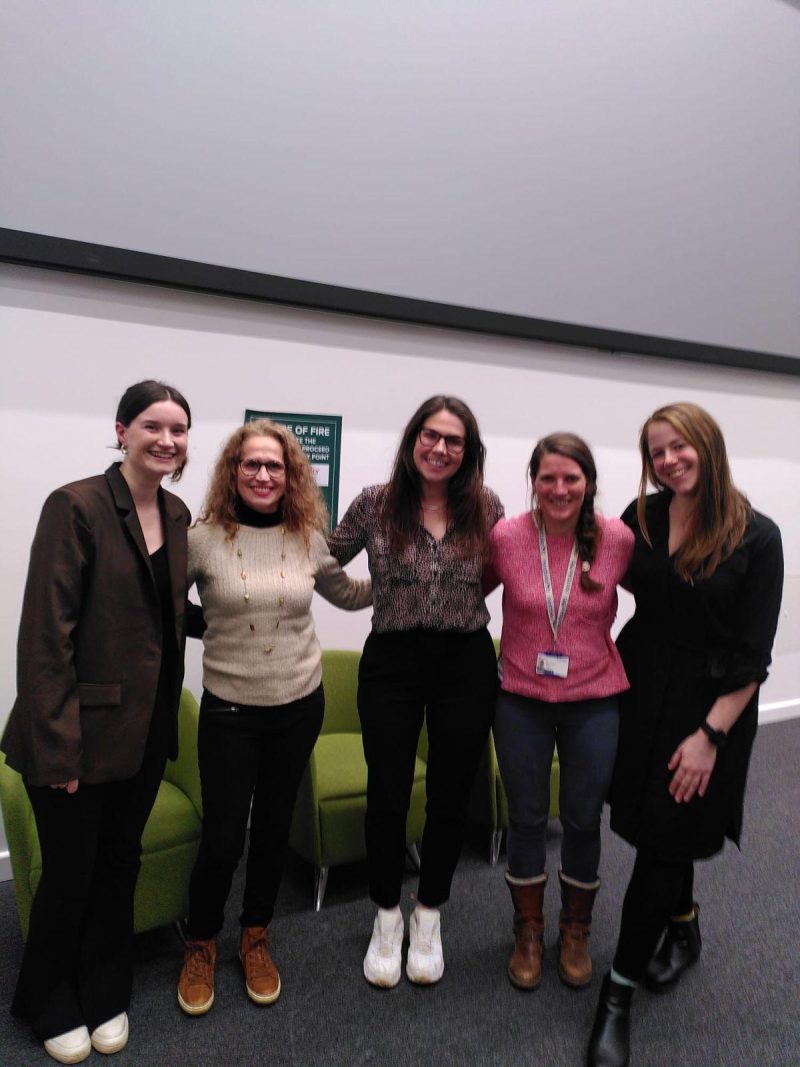Surrey Vet School Takes the Lead with Sustainability Module
Vet Sustain were delighted to be invited to Surrey Vet School earlier this month to take part in a sustainability panel discussion alongside Investors in the Environment (iiE). As part of a new 4th year ‘One Health and Sustainability’ module, Becky Sedman chair of the Vet Sustain Greener Veterinary Practice group attended the session to share tips and tricks for new graduates on championing sustainability when they enter the veterinary workplace.
Vet Sustain
Vet Sustain were delighted to be invited to Surrey Vet School earlier this month to take part in a sustainability panel discussion.
As part of a new 4th year ‘One Health and Sustainability’ module, Becky Sedman chair of the Vet Sustain Greener Veterinary Practice group attended the session to share tips and tricks for new graduates on championing sustainability when they enter the veterinary workplace.
Dr Cait Finnegan, from the University of Surrey, has led the creation and development of this new module, taking a true one health approach and involving key stakeholders such as Vet Sustain and iiE. The sustainability panel discussion was designed as an opportunity to explore starting points when championing sustainability in veterinary clinical practice and which accreditation frameworks can be used for guidance, support and quality assurance.
During the session speakers and veterinary students explored the tools available to support sustainable development in practice, such as the new environmental sustainability module in the RCVS Practice Standards Scheme, the iiE environmental accreditation scheme, and the Vet Sustain Greener Veterinary Practice Checklist, Environmental Sustainability Policy Template and Green Procurement List.
The panel session was designed to compliment a new assignment that students have been asked to complete where they carry out a sustainability audit at one of two veterinary practices that partner with the University of Surrey for delivery of intramural rotations. Both practices selected for the audit have been leading the way in driving sustainable change through initiatives such as calculating their carbon emissions, embracing the 3 R’s (reduce, re-use, recycle) and the circular economy to reduce their waste, championing staff wellbeing, promoting biodiversity at the practice premises, encouraging responsible use of medicines, educating the local community, and promoting the highest standards of animal health and welfare.
As part of the assignment, students will go on a virtual ‘tour’ of the practice via a video 'walk through' of the premises to see what sustainability initiatives they have implemented, consider how they fit within Vet Sustain, iiE and RCVS frameworks, and consider where improvements could be made.
The new One Health and Sustainability module was launched this year within the fourth year veterinary curriculum and aims to provide students with teaching and learning around One Health topics. The module has taken a more planetary approach to One Health, ensuring that links with sustainability and equality, diversity and inclusivity are made obvious, with attention paid to considering holistic health and the role of the veterinary professional.
The module explores infectious disease modeling and surveillance, emerging disease threats and pet travel, global health, trade and zoonotic disease, antimicrobial resistance and alternatives to antibiotics, the environmental impact of veterinary medicine and animal agriculture, the role of faith and culture in veterinary medicine and the consideration of EDI and allyship in the profession.
It is hoped that this module will enable students to better understand how sustainability relates to the veterinary profession and what role veterinary professionals can play in driving sustainable change. In raising awareness of these sustainability frameworks Surrey hopes to inspire new graduates as future leaders in sustainable thinking who are better equipped to face the changing needs of the world, empowered to make informed decisions and responsible actions that promote the wellbeing of present and future generations.
